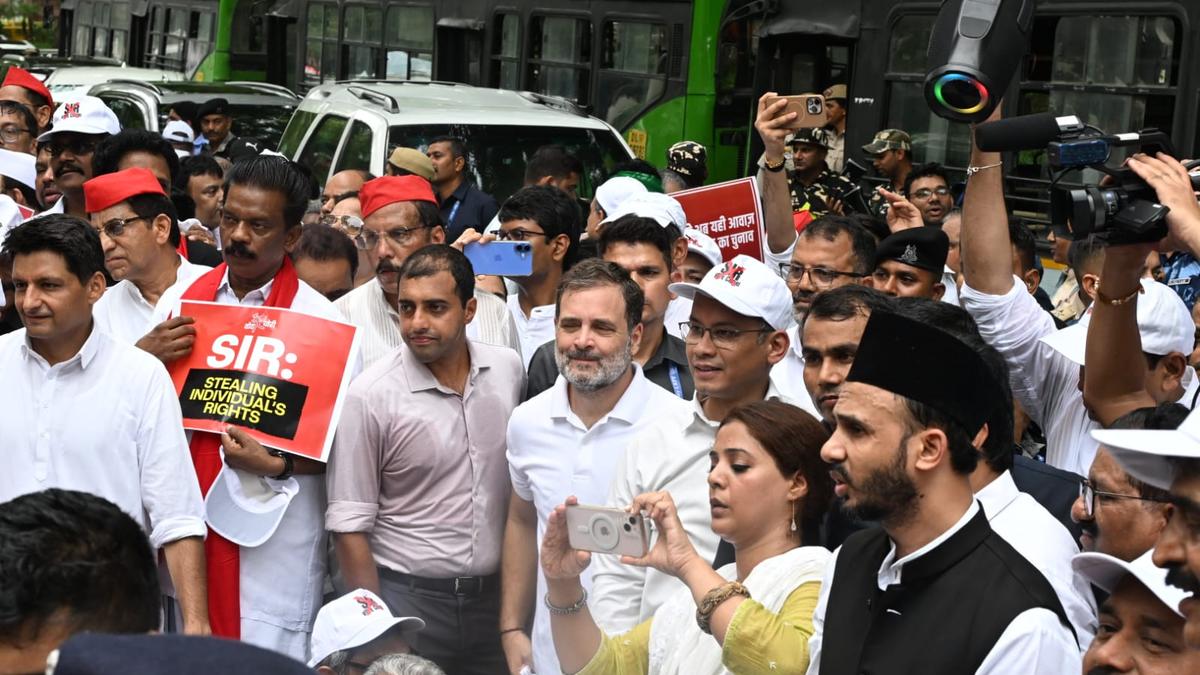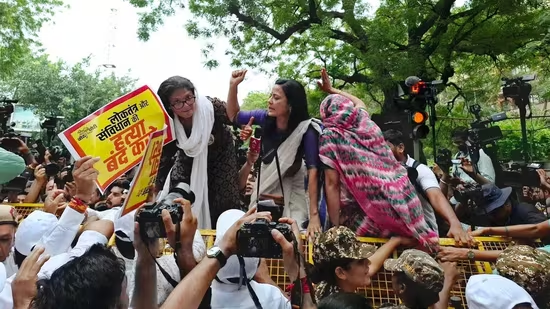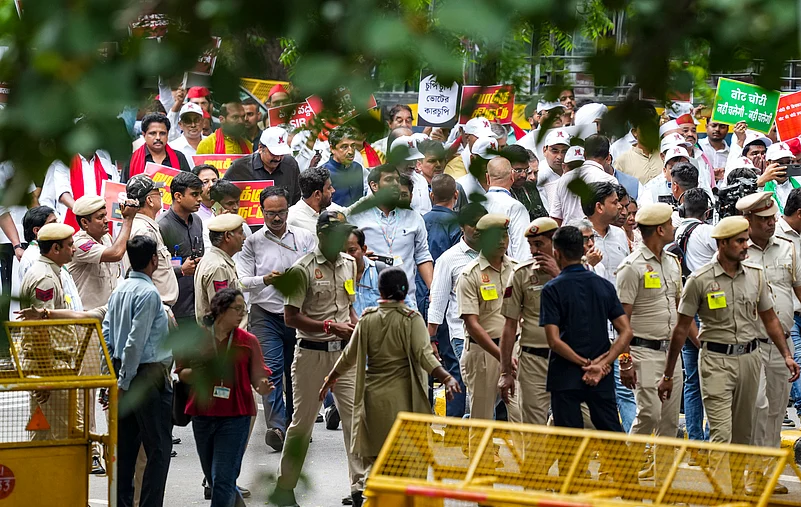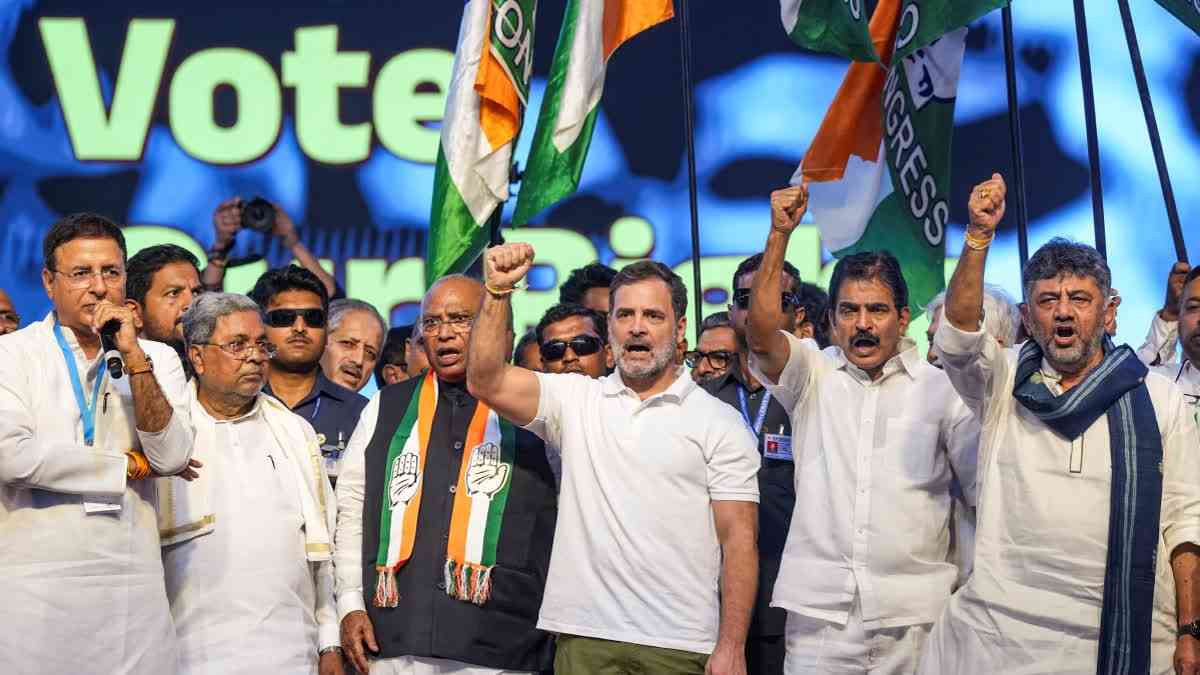On August 11, 2025, several Opposition Members of Parliament (MPs) from the INDIA bloc, including prominent leaders like Rahul Gandhi and Priyanka Gandhi Vadra, were detained by Delhi Police while they were marching towards the Election Commission of India (ECI) headquarters in New Delhi. The march had been organized to protest against the Special Intensive Revision (SIR) of electoral rolls in Bihar and alleged voter fraud during the 2024 Lok Sabha elections.

The INDIA bloc, a coalition of opposition parties, accused the Election Commission of manipulating voter lists to benefit the ruling party. They wore white caps marked with "SIR" crossed out and slogans like "vote chori" (vote theft) to symbolize their allegations. The march started from Parliament but was stopped by police barricades at Transport Bhawan, around two kilometers from the ECI office. Some opposition leaders, such as Samajwadi Party chief Akhilesh Yadav, jumped over barricades in defiance, urging citizens to stand against what they called attempts to suppress dissent.
Delhi Police stated that the opposition had not sought formal permission for the protest march, making it unlawful for such a large gathering without prior approval. The police emphasized concerns regarding security and traffic management in central Delhi, given the expected participation of around 300 MPs from over 25 opposition parties. Due to the lack of permission, police halted the march and detained several leaders to prevent further escalation.

The protest reflects sharp political tensions in India’s democracy, where opposition parties are expressing mistrust in key electoral processes. Congress leader Rahul Gandhi and others claimed that voter rolls showed irregularities such as duplicate entries and alleged collusion between the Election Commission and the ruling party. They demanded transparency and electronic data release to verify voter authenticity. Meanwhile, ruling party leaders dismissed these claims as unsubstantiated and demanded evidence from the opposition.
The protest underlines critical issues in democratic governance — the importance of electoral integrity and the need for authorities to maintain trust among citizens. Police denial of permission highlights the rules and procedures for lawful demonstrations in a busy capital city. At the same time, the opposition's decision to march despite the police restrictions shows the intensity of their concerns and their intent to raise public awareness.

This event demonstrates the complex balance democracies must maintain between allowing peaceful protest and ensuring public order. It also reflects active political engagement by elected representatives, which is vital for democracy but must conform to legal norms to avoid conflict. Both the protesters’ serious allegations and the police’s enforcement actions indicate a tense but crucial discourse on electoral fairness in India’s evolving political landscape.
In summary, the detention of INDIA bloc MPs during their protest march to the Election Commission is a significant development in ongoing debates about election transparency and democratic rights in India. It highlights heightened political polarization and the challenges of managing large-scale political demonstrations in the nation's capital while ensuring democratic accountability and rule of law.
With inputs from agencies
Image Source: Multiple agencies
© Copyright 2025. All Rights Reserved. Powered by Vygr Media.






















